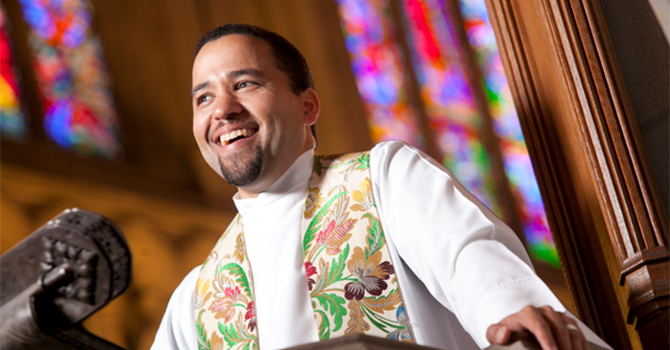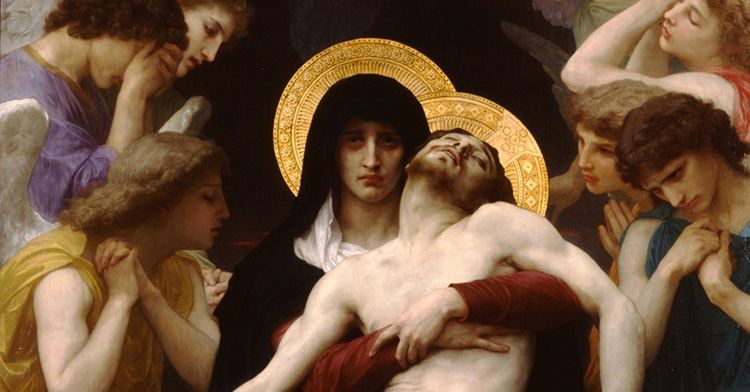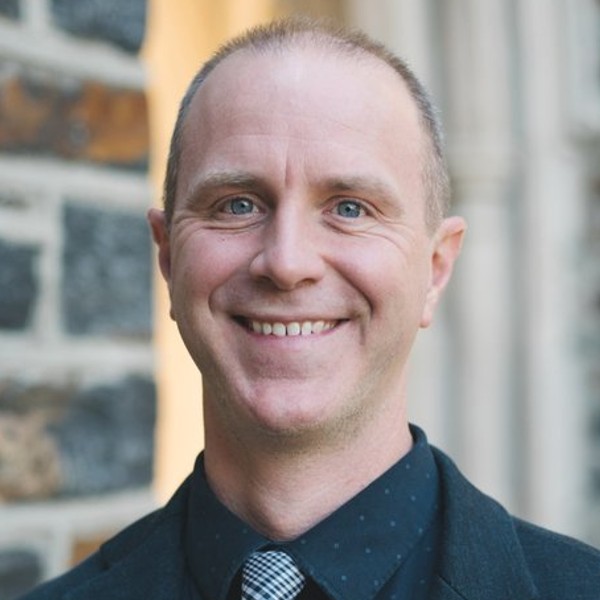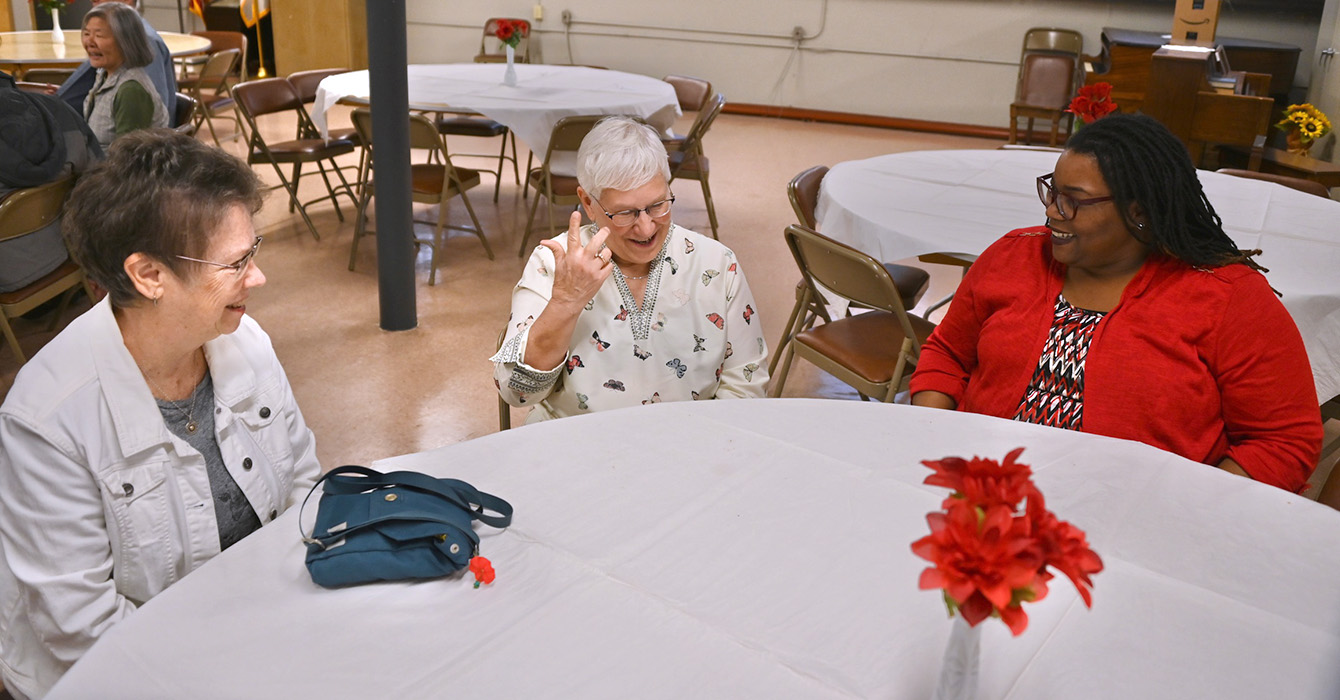Editor’s Note: This sermon was preached Oct. 5, 2008, at Duke University Chapel.
“I want to know Christ and the power of his resurrection and the sharing of his sufferings by becoming like him in his death, if somehow I may attain the resurrection from the dead.”
Founders’ Sunday could be a day of thinly veiled self-congratulation. How fortunate of James B. Duke and William Preston Few to have founded a university whose membership came to include people as remarkable as us. And looking at Duke Chapel could produce the same reaction. How fortunate of Jesus to have died to found a faith that included edifices as magnificent as this. Surely Christianity must be true, we might think, if it produced buildings like Duke Chapel.
But all of us know a very different feeling from that cozy one. We each know the skepticism, or the wondering, or the anxiety, or the blind terror, that maybe Christianity isn’t true after all. Could it possibly be that this great building and the whole Christian faith is founded on a fantasy or a fraud, a misunderstanding or a mistake? I want to mark Founders’ Sunday by reflecting that maybe we aren’t the first to think such things. Maybe our founders did too.
As I stand here this morning to talk with you about St. Paul’s letter to the Philippians, I have two friends in my mind. One is a young woman who’s always felt her faith was second rate, and a huge disappointment to her parents. You see, her parents are the kind of people who seem to be on first-name terms with Jesus. They have as little doubt about themselves as they do about him. Jesus is always placing things on their hearts; but he never seems to do so on hers. When she sits in church she feels like she does with her parents -- this constant sense that God is talking to others and not to her. It’s either unreal or it’s unfair. So she’s starting to stay away.
Another friend is a man a few years older. Faith used to fill his soul like blood fills the heart. It all made sense to him and shaped his existence. But just recently his faith seems to have been obliterated, as if his heart had been ripped out and he was struggling to get his blood round his body some other way. His friends are looking for psychological explanations, but he doesn’t want one because he’s already lost his present faith and some kind of psychological explanation makes him terrified he’ll come to think his past profound faith was a fantasy too. And he can’t bear to think that. What he had was as real as anything he’d known. It’s just not there right now.
And I think of these friends when I look at chapter three of St. Paul’s letter to the Philippians and see something there that I believe gives both of them hope. Paul says “I want to know Christ and the power of his resurrection and the sharing of his sufferings by becoming like him in his death, if somehow I may attain the resurrection from the dead.”
I find these words amazing. This is Paul, remember. The guy that wrote part of the Bible. That’s the Bible that a lot of people call the word of God, and some even regard as infallible. And he’s saying “I want to know Christ.” Not “I know all about Jesus and all about God and take it from me, you accept this stuff or you’re eternal toast.” Not that at all. Instead, “I want to know Christ.” Feel the tentativeness of it. “I want to know Christ.” In other words, I don’t yet quite know for sure.
Now maybe for some of us that tentativeness instills a level of panic. Surely, we may feel, the Bible is supposed to present to us rock-solid, unshakeable faith. Yet here’s St. Paul, arguably ranked No. 1 disciple on the USA Today All Time Discipleship Hall of Fame, and he’s saying that even he, right now, doesn’t know it all. Does that make you panic? Does that mean there’s never been anyone, in the whole history of the church, who’s known for sure? Is that terrifying?
Or is it incredibly liberating? Does it, instead, make you think, maybe faith’s not about being certain? Maybe it never was. Maybe faith begins where certainty stops. If you feel you’ve never found faith, maybe it’s because you’ve been mistaking faith for certainty. If you feel you’ve lost the faith you had, maybe this is the moment faith really begins.
“I want to know Christ.” Feel the tentativeness of it. Paul was a passionate man, but he doesn’t exaggerate his faith. And listen to that last line: “…by becoming like him in his death, if somehow I may attain the resurrection from the dead.” There it is again! Did you hear it? Did you hear that word “somehow” – “if somehow I may attain the resurrection from the dead”? He’s not 100 percent sure of his knowledge of Christ and he’s not 100 percent sure of what Christ has in store for him when he dies.
Now I’m not going to blame you if you’re finding what I’m saying deeply disturbing. I’m not going to blame you, because for a lot of Christian history this part of Paul’s testimony and this dimension of Christian faith have been airbrushed out. The great revivals that shaped the church in 18th- and 19th-century America were largely founded on Jesus being a guaranteed instrument to help you bypass hell and enter eternal life. The most successful brands of Christianity are those that make Jesus a handy device for material prosperity or inner peace or spiritual adventure or cultural dominance. But Paul is talking about something different.
Let’s look at what precisely Paul tells us about Christ. He says three things.
First he says “I want to know the power of Christ’s resurrection.” If Christ wasn’t raised from the dead the Christian story is a tale of doomed love, in which God makes one last pathetic attempt to win our love back to him. It’s a story that ends in agonized failure on the cross. But if Christ is raised from the dead, if Christ is raised… then God’s love is not finally in vain, our love is not finally in vain, agonizing as it often feels, all that is done for love will finally become fruitful, death does not have the final word, hope really is the shape of tomorrow, all our pain and shame and regret will finally be redeemed, nothing is finally wasted, fear will finally pass away and joy will prevail, all will finally become beauty. That’s the only power that finally matters. Financial power, military power, nuclear power -- no power is finally a power to compare with this. The power of resurrection is the power that dismantles every other power. When Paul says “I want to know Christ,” he says he wants to know this power, the power of resurrection.
Then second Paul says “I want to share in Christ’s sufferings by becoming like him in his death.” You wonder whether Paul had ever heard the phrase “Be careful what you hope for.” If Jesus is a device for getting us to earthly comfort or eternal blessing, then Paul’s desire to suffer is bizarre, meaningless or misguided. But Paul is talking about love. Paul is saying “I don’t just want to be the beneficiary of Jesus’ resurrection. I want to enter into the very process by which the resurrection came about. I want to go into the heart of darkness with Jesus, that I may come to discover more wonderfully the splendor of light.” Think again for a moment of my friend whose previously profound faith has disintegrated recently. He knows what St. Paul’s talking about. He would rather walk through intense suffering, even face death, provided he knew he was close to the heart of God, than face the daily superficialities of life alone.
And then third this tentative possibility, Paul says “if somehow I may attain the resurrection from the dead.” That “somehow” again. It’s almost an afterthought. Maybe an afterthought is exactly what it is. Maybe this is exactly the point. Knowing Christ is knowing the power of his resurrection. If you know the power of his resurrection of course you’ll take on his sufferings and even his death. It’s more than worth it. And naturally you hope to receive the blessings of eternal life after your own death. But even if you don’t it would still be worth it to know Christ and the power of his resurrection. That’s the heart of it all. Faith is precisely in this discovery: that to know Christ and the power of his resurrection is worth any suffering and is the heart of everything whether it ends up with the gift of eternal life or not. Yes, we hope to be given everlasting life as the gift and fruit of Christ’s resurrection. But faith begins, indeed eternal life begins, the moment we let go of our own destiny and say I want to know Christ and the power of his resurrection whatever the suffering and even if there’s no reward at the end. Jesus isn’t a device to get you to something more important. There isn’t anything more important than Jesus. Jesus is the heart of it all. That’s what faith is. It’s saying I want Jesus above all else and I’ll take the consequences.
Jesus is God saying to each one of us, “Your faith in me can be as tentative and diffident and fragile as may be, but my faith in you will never waver, not for one single second.” When God says this to you once, saying it again doesn’t make it more true. God says this to us in Jesus. Now he’s said it, it remains true for always.
On Founders’ Sunday we look back on those like James Buchanan Duke and William Preston Few who took this university by the scruff of its neck and with outrageous ambition set it on course to become an international flagship institution that we’re all proud and privileged to be associated with. When we think of people like Duke and Few, we might imagine they had incredible ambition, or incredible drive, or incredible gifts, or incredible certainty of purpose. But when it came to faith, I imagine they were no different from us. They read these same words of Paul in Philippians just as we do. And I can well imagine that they had the same measure of diffidence and tentativeness that we have. I have no idea if they ever lost faith, or wondered if they’d ever had it. If so, I wouldn’t be at all surprised.
But what we can learn from them this Founders’ Sunday is that they didn’t let that tentativeness about faith paralyze them. They didn’t know what this university would grow into, but they wanted to make an institution so wedded to knowledge and truth that whatever suffering and setbacks it endured would turn out to be more than worth it. Our founders may not have been sure of their faith, may have longed to know Christ better, may have sought eagerly for the power of his resurrection, but whatever their tentativeness, just look what they did. It still inspires us today.
I want to finish by talking directly to my two friends. To my friend who’s always put off by other people’s apparent certainty, I want to say, forget about how other people talk about God for a moment and just concentrate on this one question. Do I want to know the power of his resurrection? Not “Do I feel it?” -- Remember not even Paul could say yes to that. No, the question is, “Do I want to know it?” “Do I want to know that power more than anything else in the world?” That’s the only question that matters. If the answer is yes, all Paul’s promises can still come true for you. If the answer really is no, you may be facing a loneliness that knows no end.
To my friend who’s aching for the faith he’s lost, I want to say, wanting to believe is believing. Yearning, longing, aching to believe is entering into the passion and pathos of God’s love for the world -- feeling for a moment what it feels like to be God. Faith begins where certainty ends. Paul said “I want to know Christ” -- not “I know Christ.” Don’t let your grief paralyze you. Let it make you bolder, more dependent than ever on the power of the resurrection. And don’t let your sense of God’s absence isolate you. Jesus said “When did you see me hungry?” It sounds like you’re the one who’s hungry. Desperately hungry. Maybe it’s time you let people see Jesus in you.
If you’re like my two friends, feeling fragile in faith, take courage today. Be inspired by our university’s founders. Be bold in your longing to know Christ, and find ways, like they did, to make that longing to know Christ a quest in which others can share and a search in which others can find a blessing. Paul’s faith was tentative, as we’ve seen. But Paul found a way to make his longing to know Christ so infectious that it inspired all who followed. You can do the same. You don’t need to hide your tentativeness and diffidence. Instead, do what Paul did, make that tentativeness and diffidence an inspiration to others. Paul’s words and life became part of the Bible. By any standards, that’s a big deal. But your life and words can be a kind of Bible to others, if you let your life say to others, “More than anything else, I want to know Christ and the power of his resurrection, and I’d face any sufferings and forgo any reward if all I could know was that.” Let your life speak. Let your life speak of your longing to know Christ. And let others see the resurrection in you.














